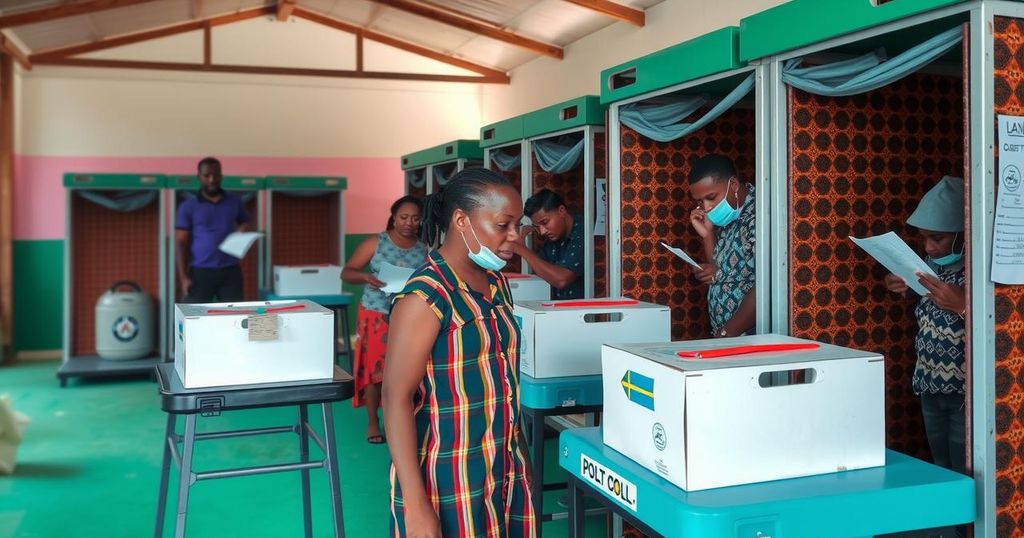Comoros Voters Head to Polls Amidst Controversy Over Elections

Voters in Comoros are electing members for a 33-seat parliament amid allegations of electoral fraud from the opposition, which follows President Azali Assoumani’s controversial re-election. Approximately 338,000 individuals are poised to vote, with polling stations open for the elections. Despite calls for a boycott from some factions, others choose to engage in the electoral process. Results are anticipated by Friday.
Voters in Comoros are participating in parliamentary elections to fill the 33-seat legislature, following controversies surrounding the re-election of President Azali Assoumani a year prior. Allegations of election misconduct have been voiced by opposition groups, although officials from Assoumani’s ruling party have refuted these claims. Approximately 338,000 registered voters are expected to cast their ballots, with polling stations having opened early on a designated Sunday. This marks the first parliamentary election since January 2020, with nearly 100 candidates vying for seats as selected by the Supreme Court.
The political landscape is marked by significant tensions, particularly surrounding President Assoumani, who has governed Comoros since seizing power in a coup in 1999 and has since won three elections. Critics label his rule as authoritarian, suggesting he is grooming his son, Nour El-Fath, for succession when his term concludes in 2029. Amidst this atmosphere, some opposition parties, including Juwa, have called for a boycott of the elections, while others have chosen to participate. A prominent opposition figure, Hamidou Karihila, views participation as a way to highlight the regime’s failings. Initial results are anticipated by the upcoming Friday.
The politics of Comoros have been characterized by instability since Azali Assoumani’s ascent to power in 1999. His government has been accused of authoritarian practices, particularly concerning the treatment of political opponents. The current election is significant as it follows a period of intense scrutiny regarding the legitimacy of political processes in the nation. Allegations of electoral fraud have marred previous elections, and the involvement of Assoumani’s son in governmental affairs raises concerns about dynastic rule, which is often met with resistance from opposition entities. These elections may redefine the power dynamics in the archipelago as long-standing grievances surface.
The parliamentary elections in Comoros represent a critical juncture for the nation’s political future, with opposition parties facing the dilemma of participation versus boycott amidst allegations of irregularities. President Assoumani’s long tenure and the potential succession plan involving his son add layers of complexity to the electoral process. As voters head to the polls, the outcomes could have profound implications for governance and opposition visibility in Comoros, highlighting the ongoing struggle for democratic integrity.
Original Source: www.armidaleexpress.com.au






